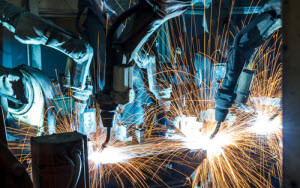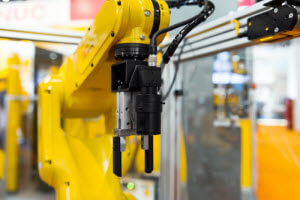Advantages & Disadvantages of Flexible Manufacturing System
Flexible manufacturing systems are becoming a prominent part of manufacturing businesses around the globe. They provide a number of production benefits and help companies to achieve greater success. However, there are a few things you need to consider before implementing a flexible manufacturing system to your business.
To help you understand the advantages and disadvantages of a flexible manufacturing system, read the guide below.
If you need valves and fittings for your manufacturing business, learn more about why we are the trusted Valve and Fittings Manufacturer in the USA.
What is a Flexible Manufacturing System?
 A flexible manufacturing system is designed to react and adapt to changes within the production process, including any unexpected issues or problems. Since the 1970s, flexible manufacturing systems have helped companies to create products quickly and more efficiently.
A flexible manufacturing system is designed to react and adapt to changes within the production process, including any unexpected issues or problems. Since the 1970s, flexible manufacturing systems have helped companies to create products quickly and more efficiently.
Flexible manufacturing systems today still work to improve the production process and offer two types of flexibility. Machine flexibility refers to how much a system can change in order to create new product types. It also describes how a system can change the order of operations on a specific part.
The second category is routing flexibility. This is the ability of a system to use many machines to perform the same operations on one part. It also refers to how much a system can adapt changes in volume, capacity, or capability.
Disadvantages of a Flexible Manufacturing System
There are a few disadvantages of flexible manufacturing systems that many companies should consider. The most important is that implementing them in the production process can be complicated. It requires extensive planning, which can involve creating detailed designs and schedules.

Flexible manufacturing systems also require highly skilled employees to operate the machinery. Salaries for these workers can be expensive. Plus, because these systems are so complicated, a different set of skilled workers is needed for maintenance and repairs. Compensation for these employees can be quite costly as well.
Above all, purchasing or adapting machinery will be expensive. With that said, flexible manufacturing systems are mainly available to larger companies because they have enough revenue to invest in the systems and maintain them.
Advantages of a Flexible Manufacturing System
Although the disadvantages of flexible manufacturing systems can make some companies wary of them, it’s important to understand that their benefits will outweigh their drawbacks in the long run.
For example, flexible manufacturing systems may be expensive to implement and add to your company at first. However, they’ll help you save money in the future. They reduce the costs of operation because their ability to adapt to changes helps to prevent defective products as well as wasted time and resources. On top of that, they require fewer workers to operate them compared to other manufacturing systems, so companies can save on labor costs.
But perhaps the biggest benefit of flexible manufacturing systems is that they help companies become more efficient. They work to keep everything running smoothly in most situations. If something within the process changes, they can easily adapt and keep production flowing to reduce delays and bottlenecks. This helps to create faster production times and, as a result, increased customer service and satisfaction.
Flexible manufacturing systems may have a few disadvantages but not enough to negate their benefits. Though costly at first, flexible manufacturing systems will help businesses to create better products, become more efficient, and increase revenue as time goes on.
To learn more about manufacturing systems and other industry tools, read CPV Manufacturing’s blog now or contact us today.

